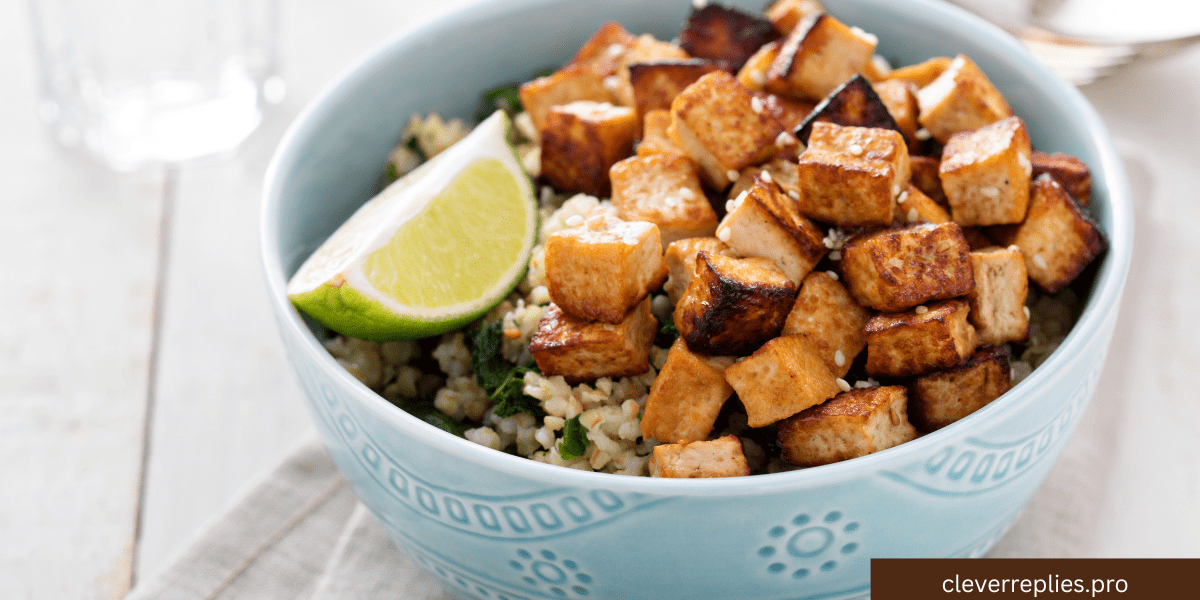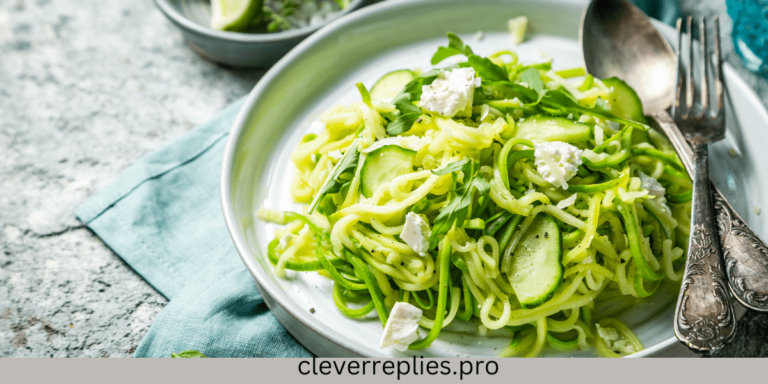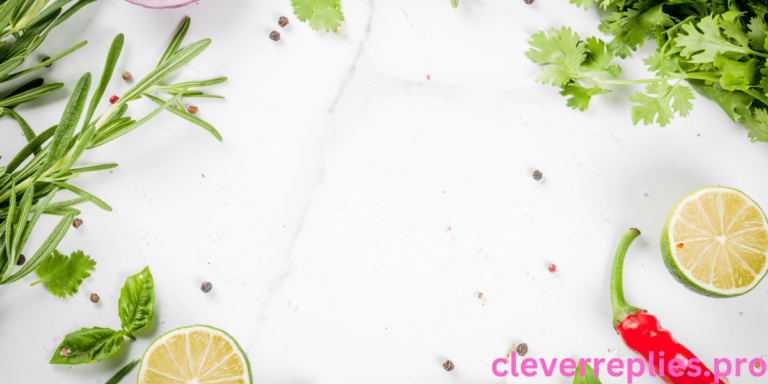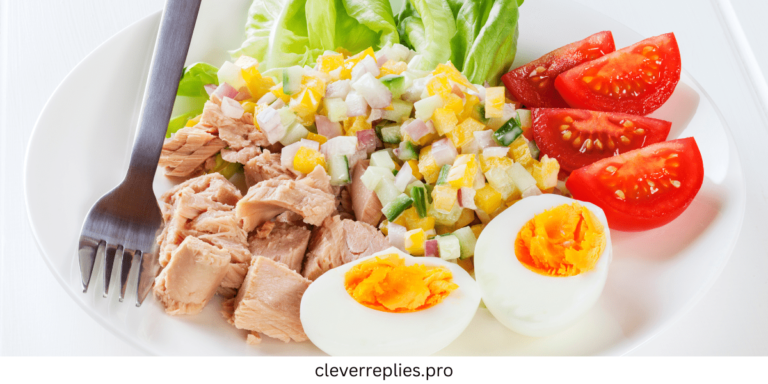Mastering Tofu: Step-by-Step Cooking Guide
Introduction
Tofu has become a staple in kitchens around the world, and for good reason. This versatile ingredient is not just for vegans or vegetarians; it’s a fantastic addition to any diet. Packed with protein, low in calories, and rich in essential nutrients, tofu can transform your meals from mundane to mouthwatering.
Whether you’re looking to try something new or elevate your favorite dishes, mastering tofu opens up a world of culinary possibilities. From stir-fries to salads and everything in between, its ability to absorb flavors makes it an ideal canvas for endless creativity. Join us as we explore the ins and outs of cooking with tofu, sharing tips, techniques, and delicious recipes that will inspire you to incorporate this amazing ingredient into your everyday meals. Let’s dive into the delightful realm of tofu!
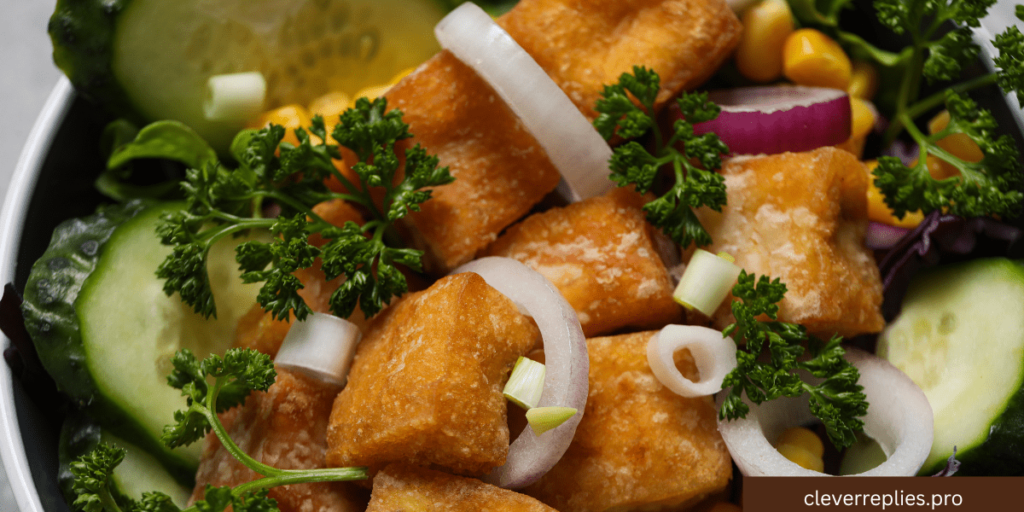
What is Tofu and its Nutritional Benefits
Tofu is a versatile food made from soybeans, specifically through the process of coagulating soy milk. This ancient ingredient has roots in East Asian cuisine and has gained popularity worldwide for its health benefits and adaptability.
One of tofu’s standout features is its impressive protein content. It provides all nine essential amino acids, making it an excellent source of complete protein for plant-based diets.
In addition to being rich in protein, tofu is low in calories and cholesterol-free. It’s packed with essential nutrients like calcium, iron, and magnesium—important for bone health and muscle function.
Moreover, tofu contains antioxidants that may help reduce inflammation in the body. Its fiber content aids digestion too. With such a nutritious profile, it’s no wonder many people are turning to this superfood as a dietary staple!
The Different Types of Tofu
Tofu comes in various types, each with unique textures and uses. Silken tofu is incredibly smooth and creamy. It works well in smoothies or desserts, adding a rich consistency without overpowering other flavors.
Firm tofu has a denser texture. It’s perfect for stir-fries and grilling because it holds its shape during cooking. This variety can soak up marinades beautifully.
Extra-firm tofu takes sturdiness to another level. It’s excellent for frying or baking, offering a satisfying bite that complements hearty dishes.
Soft tofu is less common but still valuable. Its delicate nature makes it suitable for soups or stews where it can blend seamlessly into the broth.
Choosing the right type of tofu depends on your recipe’s needs and desired outcome, allowing endless culinary creativity at home!
Preparing Tofu for Cooking: Pressing and Draining
Tofu often comes packed in water, which can affect its texture and ability to absorb flavors. To achieve the best results, pressing and draining is key.
Start by removing the tofu from its package. Place it on a cutting board or a plate lined with paper towels. This step will help soak up excess moisture right away.
Next, take another layer of paper towels and cover the tofu. You want to apply some pressure here—use a heavy pan or even canned goods as weights. Let it sit for about 15-30 minutes.
During this time, you’ll notice water pooling around your tofu. This process transforms the texture, making it firmer and ready for cooking methods like frying or grilling.
Once pressed, cut your tofu into desired shapes before marinating or seasoning it further for delicious dishes ahead.
Common Cooking Methods for Tofu
Tofu is incredibly versatile, and various cooking methods can bring out its unique texture and flavor.
Pan-frying is a popular choice. It creates a crispy exterior while keeping the inside soft. Simply cut tofu into cubes or slices, coat with cornstarch, and fry until golden brown.
Baking offers an easy hands-off approach. Marinate your tofu first for maximum flavor, then bake it in the oven to achieve a chewy texture without added oil.
For those who love grilling, marinated tofu can be grilled to perfection. The high heat caramelizes the edges, enhancing its taste remarkably.
Steaming maintains tofu’s delicate nature while infusing it with flavors from accompanying ingredients. This method works wonderfully for dishes like stir-fries or soups.
Blending tofu adds creaminess to smoothies or sauces without overpowering other flavors—an excellent option for sneaking in plant-based nutrition!
Delicious Tofu Recipes to Try
Tofu stir-fry is a classic dish that allows for creativity. Toss cubed tofu with your favorite vegetables and a savory soy sauce or teriyaki glaze. Serve it over rice or noodles for a satisfying meal.
For breakfast, try a savory tofu scramble. Crumble firm tofu and sauté it with onions, bell peppers, and spices like turmeric for color and flavor. Pair this protein-packed dish with whole-grain toast.
If you’re in the mood for something crispy, make baked tofu bites. Marinate cubed tofu in sesame oil, garlic, and ginger before baking until golden brown. These bite-sized treats are perfect as snacks or added to salads.
For dessert lovers, blend silken tofu into smoothies or use it to create creamy vegan puddings. Add cocoa powder or fruit puree for delightful flavors without guilt!
Tips for Flavoring and Seasoning Tofu
Tofu is a blank canvas, ready to absorb the flavors around it. The key lies in how you season it.
Start with marinades. Soy sauce, garlic, and ginger create a savory base. For something different, try miso or teriyaki sauces for an umami kick.
Don’t forget spices! Paprika, cumin, or chili powder can add depth and excitement. Sprinkle these on before cooking for best results.
Herbs are fantastic too. Basil or cilantro bring freshness that complements tofu’s texture nicely.
For added zest, squeeze fresh lemon juice over your dish right before serving. This brightens up the entire meal.
Experimenting with textures helps as well; crispy tofu pairs beautifully with rich sauces while soft tofu works wonders in soups and stews.
Remember to taste as you go—adjust seasoning until it’s just right for your palate!
Conclusion:
Tofu is a versatile and nutritious ingredient that can easily find its way into your meals. Whether you are vegan, vegetarian, or simply looking to add more plant-based options to your diet, tofu offers endless possibilities.
Start by exploring the different types of tofu available—silken for smoothies and dressings, firm for stir-fries and grilling. Properly preparing it through pressing and draining will enhance its texture and flavor absorption.
Experiment with various cooking methods like sautéing, baking, or frying to discover what suits your taste best. The right seasonings can elevate the dish even further; don’t be afraid to get creative with marinades or spices.
With countless delicious tofu recipes at your fingertips—from spicy stir-frys to hearty soups—you have a world of culinary opportunities waiting for you. Incorporating tofu not only boosts nutritional value but also adds diversity to your meals.
With just a little practice, you’ll master the art of cooking with tofu in no time! Enjoy discovering new flavors while embracing this nutrient-rich food in your everyday dishes.

